What Signals the end of Menopause


Menopause occurs when a woman has not had her period for twelve consecutive months. It is a transitional phase for women undergoing several body changes during this period. To label it correctly, menopause is this one day after you have missed your menstrual period for twelve consecutive months.
Perimenopause is the period of months and years before menopause in which a woman experiences the effects of an ending fertile period. The declining functional ovarian follicles result in an unpredictable fluctuation in the oestrogen and progesterone levels in the body. The rise and fall of these hormone levels affect various organs and organ systems of the body.
Some of the common symptoms of Menopause and Perimenopause include:
Headaches
Sore and tender breasts
Joint pain
Irregular periods
Mood swings
Anxiety
Depression
Reduced libido
Vaginal dryness
Urinary Tract Infections
Weight gain
Severe hot flashes
Disturbed sleep patterns
Changes in muscle mass
Increase in fat deposition
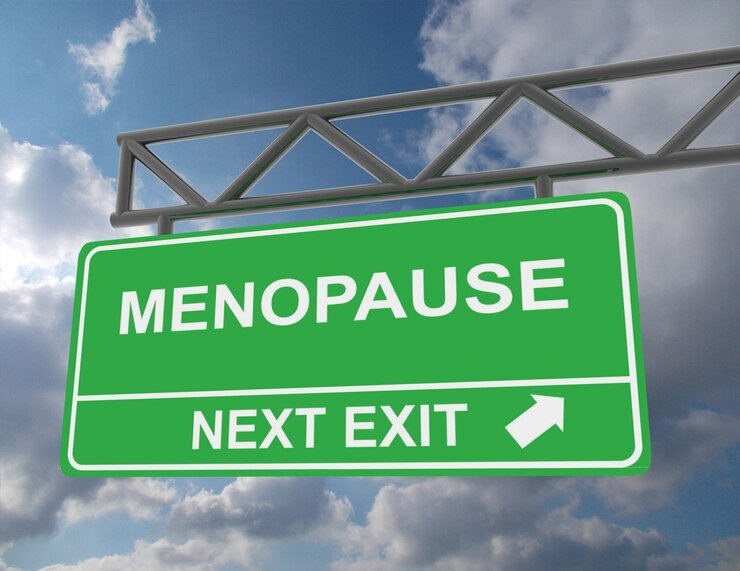
Post-menopause is the period of years that follow menopause. A woman does not ovulate during the postmenopausal period.
The toll of menopausal symptoms on the body makes every woman wish for the end stage of menopause. If you are a woman in this transitional period, I’m sure you often wonder if you are at least nearing the end of your menopause.
Of course, when you are already in your late 40s, you know menopause is soon to end for you. But are there any clear signals that you ought to watch out for?
Researchers continue to study the effects of menopause and its hormonal changes on the body.

During perimenopause, the depleting ovarian follicles produce lesser oestrogen hormones. This results in a fluctuation in the levels of oestrogen and progesterone hormones within the body. As women approach the end of menopause, ovulation has almost stopped permanently, resulting in more stable hormone levels in the body. During post-menopause, oestrogen is still produced in small amounts by other body organs.
The age at which menopause may occur ranges from 45 to 55 years, with the average age being 51years. As women approach their late 40s and early 50s, they can be assured that menopause is ending.
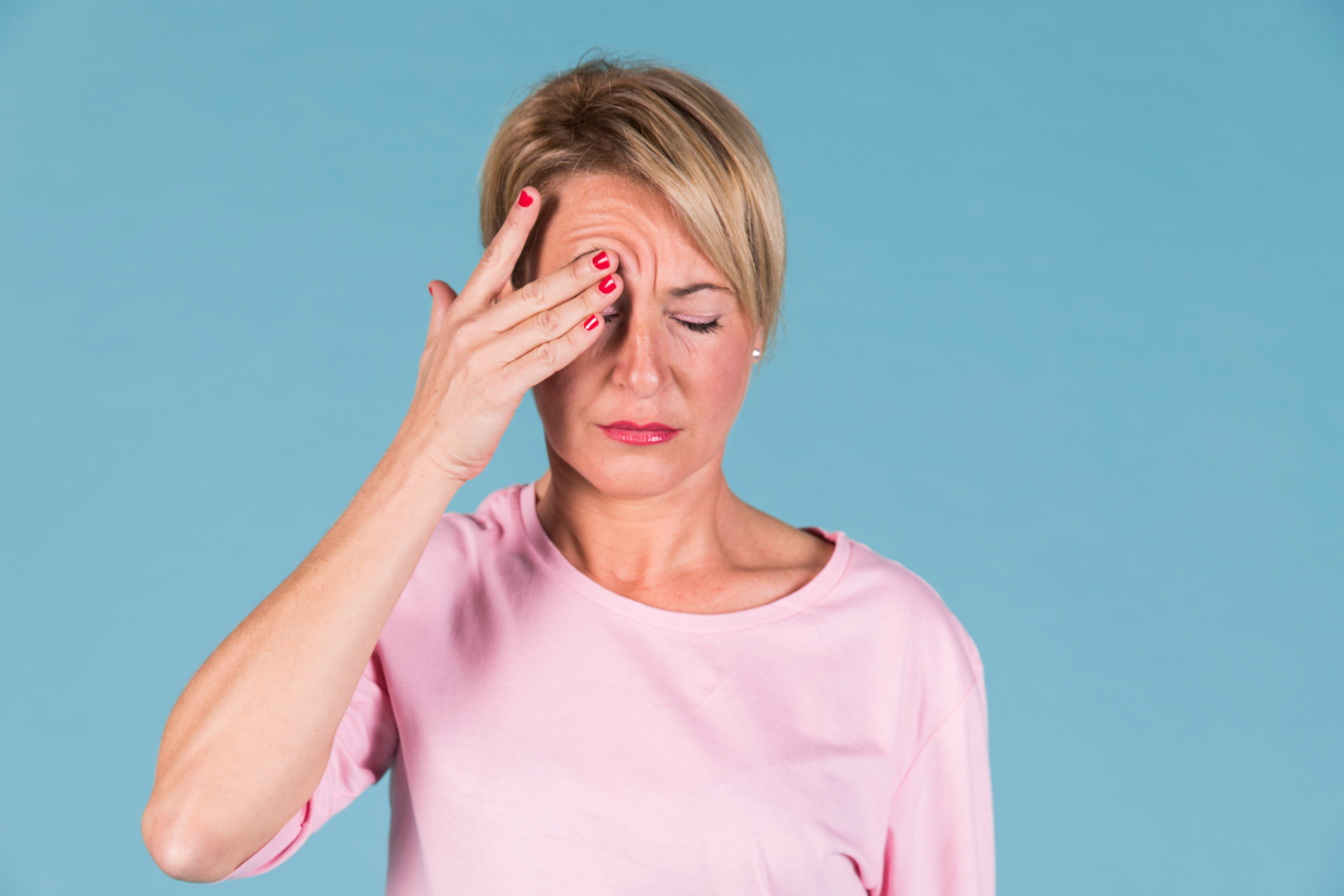
Headaches caused by fluctuating hormones are often experienced by women during menopause. The headaches could be mild, dull, severe, or throbbing pain. The headaches experienced during menopause, such as migraines, sinus, or tension headaches, could be different.
As the fluctuations in the hormones reduce, the frequency and severity of headaches also reduce, indicating that menopause is nearing its end.
The declining active ovarian follicles disrupt the menstrual cycle. Gradually the ovary stops releasing eggs, and ovulation comes to a permanent stop. As women near the end of the menopause transition, there is an increase in the gap between two consecutive periods. Women may often skip a period or two during this time. During the later stage of menopause, you may often not have a period for two months or more.
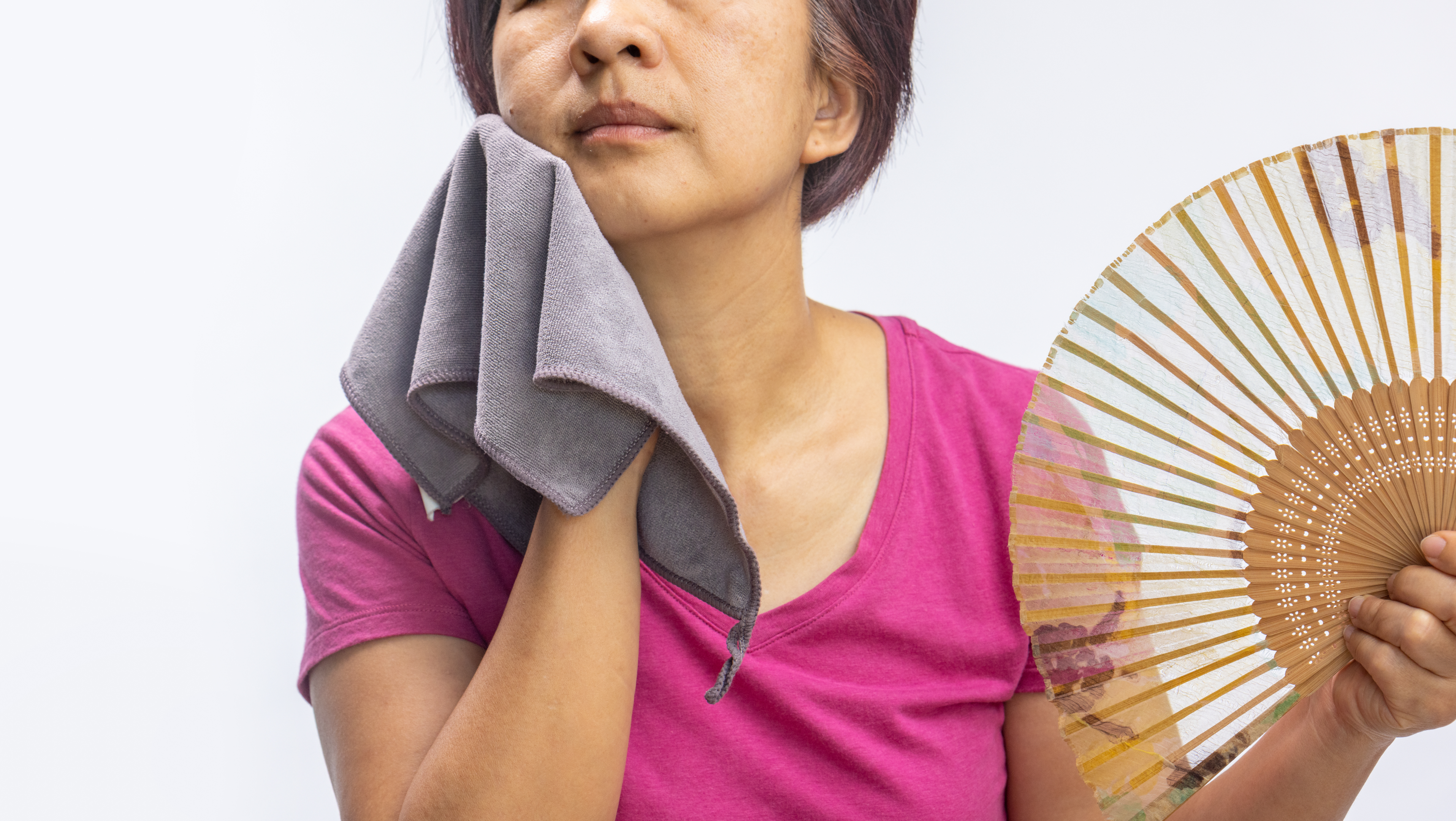
One of the most common symptoms of menopause, hot flashes, may be described as sudden bursts of heat resulting in excessive sweating, flushed skin, and discomfort. It may be mild for some women and may often go unnoticed. For others, it may be severe, causing extreme discomfort. Some may also experience these hot flashes at night, which are called night sweats.
Decreasing levels of oestrogen are responsible for the occurrence of hot flashes. Therefore, hot flashes tend to increase towards the end of menopause.
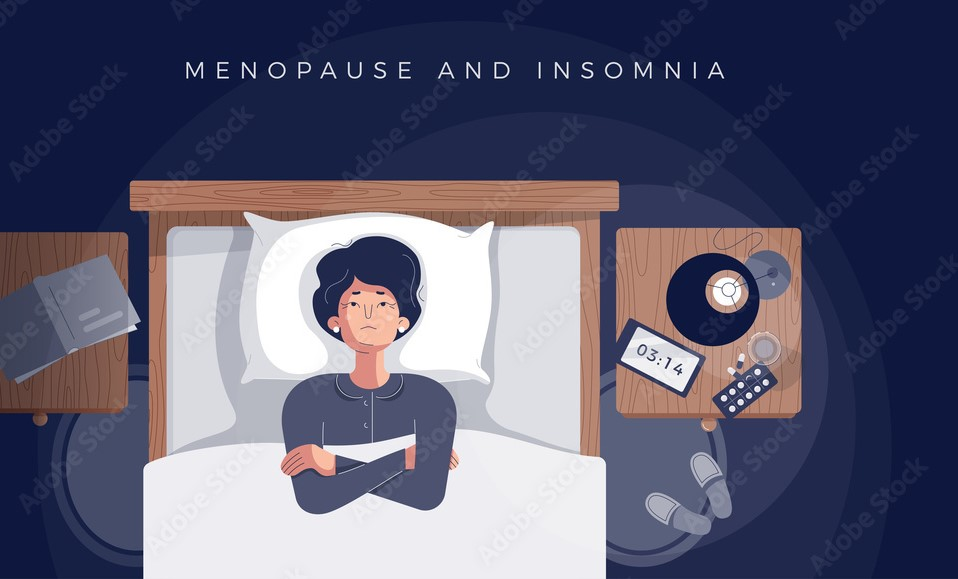
The overload of perimenopausal symptoms ultimately affects the sleep of women. Frequent headaches, breast pain, anxiety, night sweats, and vaginal and urine infections ultimately result in insomnia for many women.
Hormones tend to have a major effect on mental health. Towards the end of menopause, hormone fluctuations tend to reduce. As the hormone levels stabilize, mood swings gradually disappear. Although your moods don’t fluctuate so frequently towards the end of menopause, the constant drop in oestrogen levels also results in a consistently low mood.
Some of the effects of menopause may extend to the postmenopausal period. As oestrogen levels continue to stay at an all-time low even after menopause, its effect on various body organs is likely to stay. There is always an increased risk of cardiovascular disease and bone disorders.
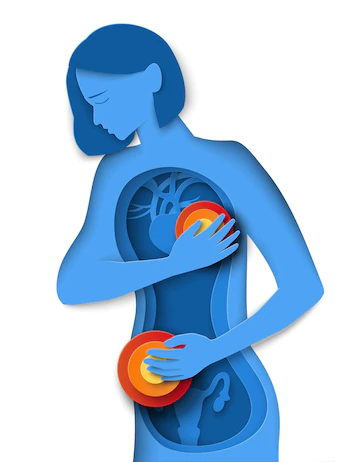
The effects of menopause can be reduced with the help of lifestyle modifications, a healthy diet, and some diet changes. Your doctor may also prescribe medications and supplements to treat hot flashes and other symptoms like headaches and disturbed sleep.
It is advised to wear cool, airy, and comfortable clothes to deal with night sweats.
A portable table fan is often handy when suffering from hot flashes.
Avoid warm and stuffy environments.
Physical exercise, yoga, and meditation have an overall positive effect on the body.
It is better to shed off those extra kilos with the help of exercise and diet changes.
Avoid caffeine and foods rich in unhealthy fats.
Small meals are recommended.
Drinking warm milk before going to bed is a great idea.
Adding food items rich in antioxidative and anti-inflammatory properties, like turmeric, chia seeds, etc., to your diet will prove to be beneficial.
Doctors may prescribe various medications like analgesics, anti-inflammatory drugs, sleep medications, and topical pain relief gels for symptomatic relief.
The medications are prescribed based on the individual's symptoms and the severity of the particular menopausal symptom.
Supplements such as vitamin B, vitamin E, calcium, magnesium, soy isoflavones, and melatonin have proven beneficial to women during menopause.
Hormone replacement therapy is another treatment option to relieve menopause symptoms in some women. One must be mindful that your doctor may not recommend this treatment option if you have a family history of cancer, as it has been observed to increase the risk of breast cancer in such women.
Researchers continue to study the effects of menopause and its hormonal changes on the body. Menopause is a natural phenomenon that occurs towards the end of a woman’s fertile period. Though the symptoms associated with menopause transition are often a burden on a woman's physical, emotional, and mental well-being, timely lifestyle and diet modifications, along with proper medications, will help you sail through this transitional period.
To view HRT treatments and other medications suitable for reducing menopause symptoms, read our information page here.








Plus get the inside scoop on our latest content and updates in our monthly newsletter.